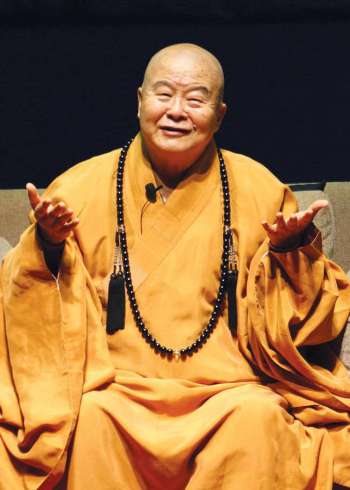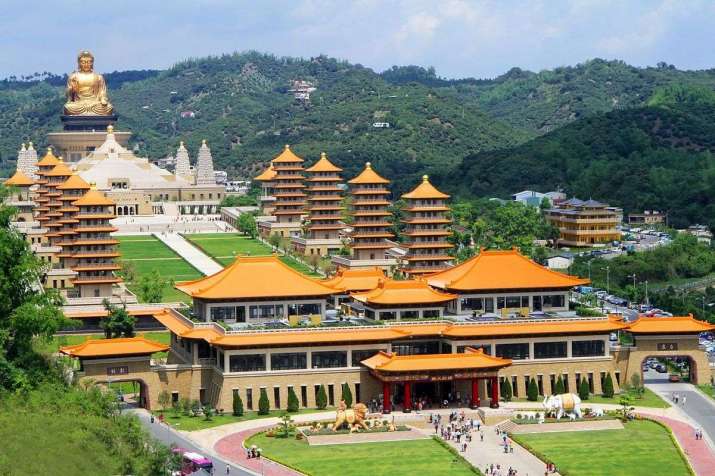Fo Guang Shan monastery, the largest Buddhist monastery in Taiwan, is later this month set to welcome a delegation of officials from the Vatican, who will attend a joint interfaith seminar in the southwestern city of Kaohsiung from 13–20 October.
Taiwan’s Ministry of Foreign Affairs said the Pontifical Council for Inter-religious Dialogue would co-host an international Christian-Buddhist forum aimed at promoting mutual understanding between the two religions.
Fo Guang Shan is a Chinese Buddhist monastic order founded in Taiwan in 1967 by the renowned monk and teacher Master Hsing Yun, with an international network of Buddhist temples and communities. As a tradition of Humanistic Buddhism, with a focus on integrating Buddhist practices into everyday life, Fo Guang Shan is recognized for its efforts to modernize Chinese Mahayana Buddhism and for operating one of the largest charity organizations in Taiwan. Fo Guang Shan is also known for its enthusiastic embrace of modern technology, which has been widely adopted by the movement’s temples. Master Hsing Yun has previously stated that he views Fo Guang Shan as an “amalgam of all Eight Schools of Chinese Buddhism.”
 Master Hsing Yun. From bliango.org
Master Hsing Yun. From bliango.orgThe Catholic delegation will be led by the director of the Holy See’s Dicastery for Promoting Integral Human Development, and the director of the Pope’s Worldwide Prayer Network and Eucharist Youth Movement.
Some 60 participants from 16 countries and expected to attend the interfaith event, according Chen Hsing-hsing, deputy head of the European Affairs Department under the Ministry of Foreign Affairs. Delegates will include the secretary of the Pontifical Council for Inter-religious Dialogue Monsignor Miguel Angel Ayuso Guixot and undersecretary Monsignor Indunil J. Kodithuwakku K.
Other distinguished guests of the gathering include Father Bruno Ciceri, international director of the Apostleship of the Sea at the Holy See's Dicastery for Promoting Integral Human Development, and Father Frédéric Fornos, international director of the Pope’s Worldwide Prayer Network and Eucharist Youth Movement, said Chen.
The seminar will be the third interfaith event in Taiwan after the 24th World Congress of the Apostleship of the Sea and the sixth Buddhist-Christian Colloquium Review, both of which were held last year.
Master Hsing Yun, now 91, was fully ordained in 1941, and is the 48th patriarch of the Linchi school of Chan Buddhism. He is an outspoken proponent of equality among all people and religious traditions, and is popularly known in Taiwan as one of the “Four Heavenly Kings” and Fo Guang Shan one of the “Four Great Mountains” of Taiwanese Buddhism, along with Chung Tai Shan founded by Master Wei Chueh, Dharma Drum Mountain founded by Master Sheng-yen, and Tzu Chi founded by Master Cheng Yen.
According to data from Taiwan’s 2005 census, Buddhism is the most widespread spiritual tradition practiced in Taiwan, with 35.1 per cent of the population identifying as Buddhists. The second largest segment of the population, 33 per cent, practice Daoism, while this with no religious affiliation make up 18.7 per cent. Christianity accounts for 3.9 per cent, with most of the remainder made up of various Chinese folk religions, including Tiandism, Xuanyuanism, Yiguandao, and Zailiism.
See more
Vatican, Fo Guang Shan to hold interfaith seminar (Taipei Times)
Vatican officials to visit Taiwan soon for interreligious seminar (Focus Taiwan)
Fo Guang Shan Monastery
Related news from Buddhistdoor Global
Global Buddhist Village Symposium in Taiwan Examines the Dharma in a Time of Radical Change
Taiwanese Buddhist Organization Fo Guang Shan Organizes “2018 New Year Festival of Light and Peace”
Master Hsing Yun Articulates Vision for China’s Buddhist Future
Fo Guang Shan Founder Master Hsing Yun Stable After Stroke and Brain Surgery
First Cultural Forum of the Heart Sutra Held in Nanjing, China
Related features from Buddhistdoor Global
Nurturing the Roots of Chinese Buddhism in Africa
Zu Lai Temple: The Largest Buddhist Temple in South America
Bridging Differences, Building Dialogue - with Dharma Master Venerable Hsin Tao
















